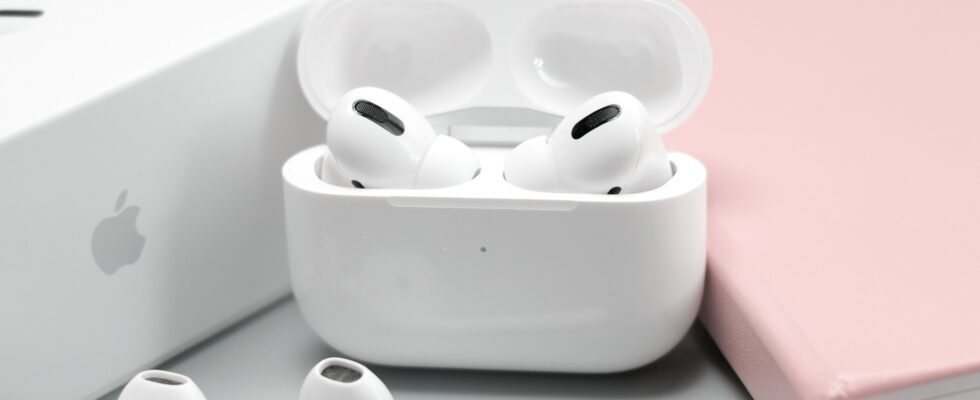At first considered an extravagance, the wireless headphones, AirPods in the lead, are now very popular gadgets. However, their increasingly widespread use is not very good news from an ecological point of view…
Since they are particularly small, wireless headphones have batteries that are almost irreplaceable.
A battery that cannot be replaced in the majority of cases
They are lithium-ion, similar to those that power smartphones and other electronic devices. This type of battery degrades over time. Thus, experts have disassembled earphones and estimated that their battery reaches 80% of its initial capacity (when considered worn out) after 500 charge cycles. That’s about a year and a half of daily use.
However, most headphone manufacturers do not provide instructions on how to replace the battery, or sell the parts needed to complete the repair. Apple, for example, offers AirPods battery service for all models that are out of warranty, but that process involves replacing the affected earbud.
” We’ll replace the user’s AirPod and send the old one to a top recycler for responsible handling », Indicates the brand with the apple. Likewise, the company doesn’t provide do-it-yourself repair manuals for its wireless headphones, unlike its smartphones or computers. It is also not recommended to tackle it yourself without any instruction; if punctured or shorted, the batteries can cause a fire.
Solutions not favored by manufacturers
Since it is almost impossible to extend the life of wireless headphones, they are discarded and replaced by new pairs after a few years of use, adding a new candidate to the very long list of electronic waste. which damage the environment.
New solutions for composing lithium-ion batteries, such as iron or titanate, make it possible to extend their long-term life. On the other hand, they shorten the autonomy for a single use, because they contain less energy. Taking this into account, it seems obvious that manufacturers do not favor this solution. End-of-life wireless headphones should therefore continue to pile up everywhere while waiting for the potential emergence of technology to optimize lithium-ion batteries.
Source : The Wall Street Journal

3